#the magi
Explore tagged Tumblr posts
Text

Adoration of the Magi - Emil Nolde , 1933.
German , 1867-1956
Oil on canvas
74 notes
·
View notes
Text

#the new yorker#epiphany#three kings#three kings day#three wise men#the three wise men#the three kings#the magi#nativity play#nativity plays#vintage christmas#christmas#vintage illustration#william cotton#vintage magazines#old magazines#vintage magazine covers#old magazine covers#1950s#50s
28 notes
·
View notes
Text
Spirits and Inhibitors
Some contrasting viewpoints to give you a little context into some of the ways magic works (and doesn't work) in Zorlok. Full text below the cut.



Strength, Adaptability, and Rigidity of the Spirit in Magical Practice
Speech from Silenus the Elder, High Priest of the Magi from 1512-1523. Translation and Afterword by Luther Weiss.
It has long been acknowledged that Spirit—more importantly, the Strength of a person’s Spirit—plays a key role in one’s ability to sense magic and aptitude for wielding it. The correlation is undeniable—the Stronger the mage’s Spirit, the Stronger the mage. Until now, Strength has been used as our primary determinant for assessing a person’s potential as a mage and status as a member of the Magi. It is how we select which young we raise and which we take in. It is how we predict who will maintain the proper character needed to become and remain a member of our esteemed order. If a mage’s Strength falters or fades, it is a true reflection upon the character of their Spirit and an insight into potential moral and spiritual failings.
The importance of Strength is not something I wish to argue, nor do I think I could do so in good faith. Rather, I believe that we have limited ourselves by considering Spiritual Strength to be the sole marker of an individual’s potential—for better or worse. There is a separate, perhaps even more important trait we have yet to consider, a quality of Spirit I refer to as Adaptability.
The measure of a Spirit’s Adaptability reflects its capacity to alter or be altered. A highly Adaptable Spirit is highly receptive to change. It is able to mold itself to whatever situation it finds itself in or pressures it is placed under. This change is not necessarily associated with a change of mind or heart, simply a certain pliability or flexibility that allows for survival in dire circumstances or success in controlled ones. On the other hand, a Rigid Spirit has a fixed state of being. It is resistant towards or even impervious to change no matter the circumstance.
Picture a bowl of water. If a knife is stabbed into the bowl, the liquid merely bends around it, allowing the knife to pass through and then reforming itself without loss when the blade is removed. Now imagine a block of ice placed in the same bowl. If it is stabbed like the water was, either the knife will shatter the ice or the blade itself will break upon impact. This is the difference between Adaptability and Rigidity.
As I said before and will maintain now, Strength is the most viable quality we know of to determine one’s capacity for wielding magic. However, it is not relevant for determining how magic can be used upon or around someone.
Think of it, brethren. Are there not times when you were certain you executed a spell to perfection, but the expected result was weaker than it should have been? Or failed entirely? There could be different factors at play. Perhaps the connection to your magical source was weakened by distance, the material components were flawed, or your somatic performance was hindered by bodily restriction. There are many ways we can erroneously fault ourselves when explaining our failures or shortcomings. I often fall into this trap myself.
Nevertheless, several years ago I noticed that every time I was near a certain individual my magic would fail with impossible yet undeniable reliability. I assumed it coincidence at first, blaming myself when I knew in the back of my mind that the issue was not my own. After years of mounting frustration and evidence, there was only one possible conclusion. To put to bed any notion of coincidence, I performed a series of tests upon the individual. Without fail, my spells never worked properly around this person. More importantly, they did not work upon them at all. This individual was a mage themself—able to wield magic with only minor inconveniences they had learned to work around—but they were entirely immune to its effects. Their Spirit was very Strong indeed, but entirely Rigid.
As I’m sure you must see, this story having been laid plain before you, those with Rigid Spirits pose a danger to us all. A mage able to wield magic without fear of it being turned back against them is a mortal threat—not just to our order but the world at large. Brethren, I beseech you; we must find these Inhibitors with the greatest haste and deal with them appropriately. Furthermore, from now on, only individuals with Spirits that are both Strong and Adaptable should be permitted to join our ranks.
Afterword
This speech, originally given by Silenus in 1510 and printed shortly thereafter as “Adaptability and Rigidity, the Threat of Inhibitors” is the genesis of all prejudice against and prosecution of those with full or partial immunity to magic. It led to—for lack of a better term—a witch hunt against mages of “rigid spirit”. This eventually spilled over to hunts for rigid spirits in general, no matter the person’s background or abilities. I suppose the thought was, if a human couldn’t be controlled or subjugated through the use of magic, that person—without any spells or casting abilities to speak of—was a threat the Magi of old needed to eliminate.
Translating this piece of our history was not a task I undertook for the joy of doing it. It was a burden I took upon myself so that a greater number of people could perceive the true, unaltered face of this despicable man. To allow you to see and judge for yourself the danger his words posed then and the danger they pose now.
Conveniently, Silenus leaves out the fact that he captured, tortured, then murdered his child’s wetnurse—the first and only confirmed Inhibitor he discovered. He went on to launch a violent crusade against mages and humans alike and then as a reward was elected to the position of High Priest of the Magi. Silenus is irredeemable, and any contemporary mages who argue differently pose as much of a threat to our society as he was to his. Do not listen to the fearmongering of these few.
Inhibitors do not pose a threat and, even if they did, it’s been proven that they are few and far between. They were scapegoats used to explain away the faults of aging wizards with god complexes. Targets for senseless violence that—despite what some may tell you—continues to this day.
If you know of an inhibitor, protect them. Say nothing. If you are afraid of inhibitors, turn your gaze elsewhere and consider why you are being made to fear someone merely because you’re unable to control them.
When we think and act rationally as one, we are strong. If we fail in any of those pursuits, we are the threats. Look at history not through the lens of the one telling it to you, but through the lens of an observer, one capable of looking at all sides and finding the unbiased truth for yourself. I beseech you—my friends, my peers, my teachers, my fellow Magi—think for yourselves. Ask the questions they don’t want you to consider. We walk their halls. We read their tomes. We wield their powers. We inherit their legacy.
We cannot do so mindlessly. It is only through challenging what we’ve been told that we can better ourselves. And we can be better. I know it.
Luther Weiss
Luther Weiss, Initiate of the Fourth Order, Assistant Archivist of the Scarlet Tower
#cw mentions of historical death and violence#tldr: some people called 'inhibitors' are fully or partially immune to magic and the magi really didn't like that for a long time#lore#the magi
33 notes
·
View notes
Text

Kevin “Geordie” Walker - Killing Joke, Murder Inc., So36, K-93, The Damage Manuel, The Magi
18 décembre 1958 - 26 novembre 2023
#Kevin “Geordie” Walker#geordie walker#kevin walker#K÷93#Killing Joke#Murder Inc.#So36#The Damage Manual#The Magi#killing joke#killingjoke#post punk#post-punk#punk rock#punk#new wave#newwave#1980s#80s#80's#80s music#80s punk#80s style#80s aesthetic#80#industrial#industrial music#industrial band#indus#uk artist
99 notes
·
View notes
Text
I summon from the collective dream Symbols of the magian world To do my will under Venus’ sign: I summon salt and sulphur I summon mercury and gold I summon diamond and ruby I summon lymph and blood I summon serpent and lion I summon white tincture and red I summon the tree bearing moon and sun as fruit.
— Ithell Colquhoun, I Saw Water: An Occult Novel and Other Selected Writings, (2014)
#British#Ithell Colquhoun#I Saw Water: An Occult Novel and Other Selected Writings#(2014)#Venus#The Magi#Occult Symbolism#Rituals
23 notes
·
View notes
Text
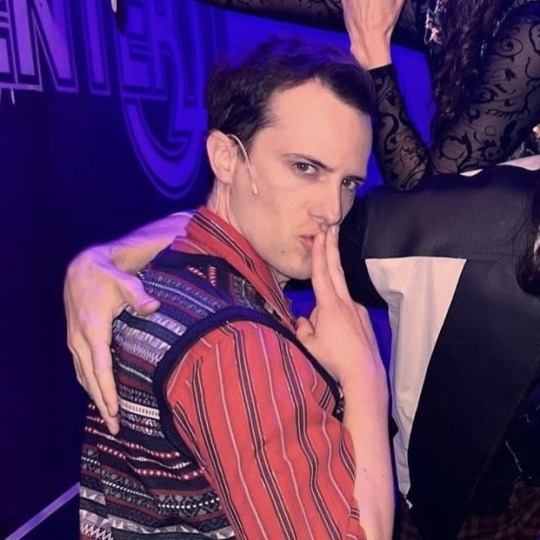

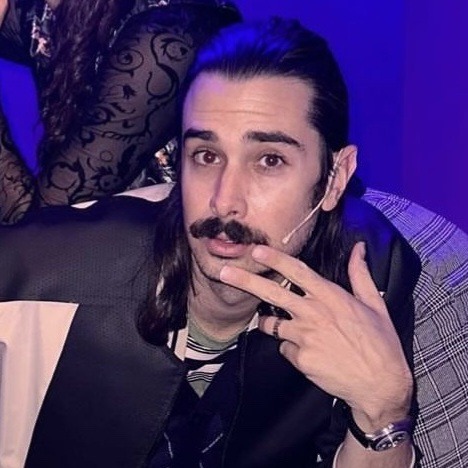
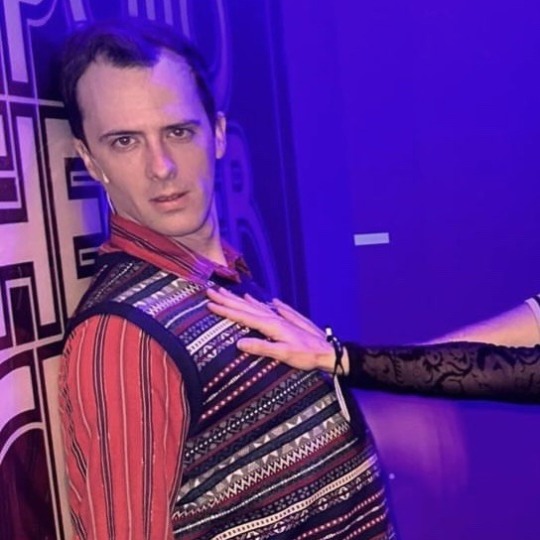
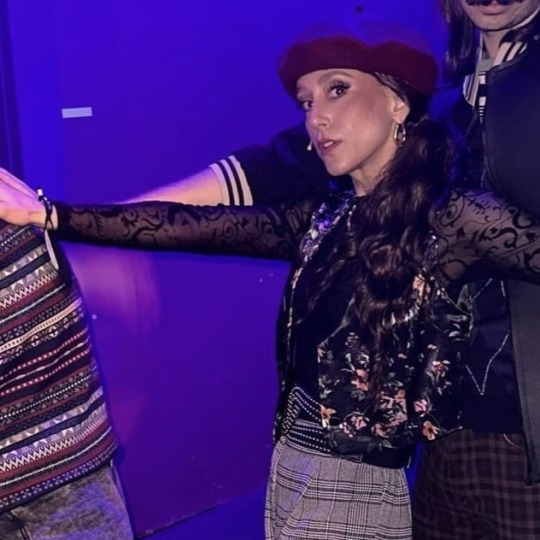
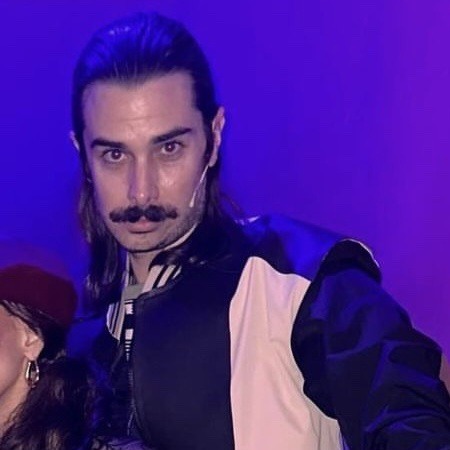
Matching profile pictures for you and you're besties perhaps?
#I'm gathering pictures for tomorrows sexman bracket instead of forgetting to prep again lol#starkid#vhsccs#vhs christmas carols#bred vhsccs#gruelle vhsccs#spektr vhsccs#bred gruelle spektr#the magi
29 notes
·
View notes
Text

Adoration of the Magi, oil on wood, circa 1500.
"Think what you want, be what you want, and—" (above all) "—buy what you want"; that seems to be the standard of the modern political and economic system. And this is repugnant to what Christianity is about, and what Christmas is about. At the heart of Christmas is this… extraordinary fact, still breath-taking after two thousand years, that God becomes one of us, that we may be caught up in the rhythm of divine life. And what is the divine life? It's not [...] "do what just feels right." The divine life is a life of radical love: it's being for the sake of the other. And you can see it on iconic display in the Christmas story, in the Christ-Child. Christ comes into the world not in self-indulgent luxury; He comes into the world in straw-poverty. He comes not to aggrandize His own ego, but to give Himself away in love; He comes not to feed Himself on the goods of the world, but to become Food for the sake of the world. The angels announce not a hero of self-indulgent liberty, they announce precisely a hero of love, one who has come to save the world.
Bishop Robert Barron
#Christianity#Catholicism#Christmas#Jesus Christ#modernity#consumerism#materialism#love#agape#kenosis#Via Crucis#Incarnation#Eucharist#sacrifice#Bishop Robert Barron#The Magi
8 notes
·
View notes
Text
The Bible does not say that three magi came to visit Baby Jesus, only that there was a plural number.
So why do people say that there were three magi?
Because there were three kinds of gifts given
Because in the third century artists started drawing three people in their art*
That’s it.
.
.
.
* Schiller, G. (1971). Iconography of Christian Art (English translation from German). p. 96
#bible study#the bible#holy bible#nativity#jesus christ#the magi#three wise men#bible verse#bible scripture#christianity#religion#did you know#little known fact#random facts#random fact#merry christma#merry xmas#happy holidays#xmas#christmas
8 notes
·
View notes
Text
The first letter written to Giovanni that Marsilio includes in his collection is placed directly following that friendship-spat between Lorenzo and Marsilio which never was ever wholly resolved. It was, to quote, a goddamn bitch of an unsatisfactory situation.
Lorenzo, thinking Marsilio should pay him more mind, tetchy and hot headed: You tell us to love wholly, utterly, to write letters of love to one another, to write-write-write – well write me, you absolute –
And Marsilio, busybusybusy with his new parish, rector now of a church, he has lambs in a pasture to care for, cannot attend always to his young patron: I love you I love you I love you but remember always the importance of mirrors in Plato and how we reflect within each other – therefore I am with you and you with me &c. &c. &c. also your anger is sweetness, your bite is sweetness, your kiss is sweetness, nature mingles sharp and delightful together so this is natural your hot-cold, your anger-forgiveness, it’s fine. I’m fine. You’re fine. We’re all fine. Also, if we must come to it, Lorenzo, you’re the reason I am busy. I have thanked you for the parish you got me already, here I will thank you for another four paragraphs &c.
How interesting, to place the first letter to the ostensible love of his life apres cette deluge of whatever it is Lorenzo and Marsilio are failing to do for one another. There is, naturally, a point to it.
Marsilio Ficino to Giovanni Cavalcanti, his unique friend: greetings. “Tonight I had decided to write to you in the morning like this: ‘come back, my hero! Hurry! Fly here, I beg you!’ Then, on more mature reflection, I deemed it wiser to dissemble my longing so that you would return all the more speedily, thinking me angry. Well, I am! But what’s the point? Will anger stir him whom love has not moved? I don’t think so. So I don’t know which way to turn – to entreaty or to scolding.”
See, look at the mirrors! The Janus-ian nature of this collection. Here it is Marsilio's turn to play as a supplicant begging for letters how Lorenzo had only two pages back. We are in each other, we are of each other, reflected, subsumed, consumed - God is whole and all and nothing. If we are in God then we are whole and all and nothing. Reflecting, refracting, through centuries.
Few of the letters in Volume One are dated, as Marsilio arranged them for effect rather than chronology though we can assume most of the letters were written between 1464 and 1473/74. He would, in future volumes, be broadly similar in approach except we can (more or less) stamp years onto them. Everything in Volume Two is from 1474 to ’76, Volume Three is ‘75/’76 to ’77. Volume Four is '77 and ’78 and - well. ’78 is what matters, of course.
By Volume Two the tone will change. Marsilio will not know this as he puts together Volume One as early as 1473. Indeed, it is dedicated to Giuliano de' Medici. But later, later there will be a knife dropped between One and Two. How we all were before 1478. How we all are after 1478. It haunts every letter. And after 1478 the letters will be haunted by 1492 and '94 and '96.
Haunting every letter is our knowledge of how it ends.
“Ah! Now that I have found a refuge. I shall trust in that heroic heart of yours which usually moves more quickly of its own volition than when spurred.”
Giovanni is an absence and a silence throughout Marsilio’s letters. This is not a new statement. That we know of Giovanni precisely because Marsilio loved – that is not a new concept. Most throughout history are understood through their absence. Their silence. Queer love is especially notable in it’s silence. Which can be a violent absence but, at the same time, silence can be what exists when words have lost meaning, when they cannot hold what needs to be expressed. Silence can be soft as much as it can be harsh. Sweet and sharp.
With Giovanni we are lucky for Marsilio's penchant for veering most verbose. He comes to us, now, in fits and starts. Little gasps and flutters of ah! Ah! I can almost see you! There is a glimmer of, at the minimum, how you were interpreted by another.
So here we have Giovanni who prefers not to be pressured. Who might have a bit of a contrarian nature. Perhaps there is some spark, some flare to him (we know, we will see later, his By Hercules! His stubbornness, his insistence on having his opinions heard). We are only just meeting him, you understand, in this letter. This introduction to the man who will haunt Marsilio’s works – all of them – in one capacity or another.
Indeed, while Marsilio's work is not a hauntology in the strict sense of the definition, there are moments when it could be read as such. Moments when we see him, it's 1495, and he's putting the final touches on the full twelve book series of letters and he opens Volume One and sees the original preface, the original dedication: Giuliano de' Medici. He must see ghosts, then. He must know he has captured men, women, a society, a world, that will echo forward through time shaping this and that while, simultaneously, falling to dust.
“Meanwhile, how shall I stop myself grumbling at you just a little because you are so unmindful of me? But I shall hold back my complaints and, not to bore you with the same old tunes, I shall embark on mattes of greater moment. I shall write about affairs of state. You ask what is going on in town. Serious matters are afoot. Listen! But tell no one! Many of the chief citizens are saying: ‘Oh Marsilio! Why have you been alone in town for so long?’ ‘Because the man who never leaves me on my own so wishes it.’ ‘He has not returned, then?’ ‘Not yet.’ I have nothing more to write you at present. I have written about the state of affairs in town; now it is for you to write about the country.”
Marsilio is often humourous in his letters to Giovanni. He will berate himself when he is not. When he cannot manage a jest, he will apologize. When he must think only on philosophic topics, he will still attempt to inject levity. There were philosophic reasons for this – the power of humour as a teacher, the importance of laughter in learning. Plato wrote about this, as did Church fathers, and Marsilio was ever devoted to education. But more than that, fundamentally at the end of the day, Marsilio liked to joke. He liked a laugh.
It is the nature of time and distance to obscure meaning. There are things we cannot fully appreciate because we are not them, we are not there, but what we can know is that they thought it funny, they found pleasure in each other’s happiness. Though, by some third-parties, Giovanni is painted as a rather serious man. A contrast to the impish Marsilio. Still, he must have appreciated Marsilio’s humour or Marsilio wouldn’t spill so many words attempting to be humourous for Giovanni’s sake.
“Stay! I have blundered! I do not require you to write, but to speak of them. If we speak together, my hero, we speak about the same things; if we write, we write about different ones; I write from memory, Giovanni, and you from forgetfulness. Now I wish I had not said that. My friend has not forgotten me because he has not forgotten himself. Look, he has already granted my prayer. Here he comes. Yes, he comes! Run to meet him, lucky feet. Embrace him, fortunate arms.”
The letter wends its way into a typically Ficinian conclusion: I was harsh! I meant not to be! Love me! Fly to me! I love you! Know your Plato! We are mirrors of one another – one, as we are in God.
Later, Marsilio will call their souls married. He will husband Giovanni in words. He will love all consumingly. He will rewrite the world for Giovanni.
Here and now, though, he wants Giovanni to remember him. He wants Giovanni to know they are within one another, a balm, a soothing constancy. All Giovanni (Marsilio) need do is to turn inwards. All Giovanni (Marsilio) need do is ponder the inner world, the inner life, the soul. Come to stillness. Come to a form of soft silence.
----
Sometimes you just need to go !̷̨̛̖̬̫̺͕̻̫͓̥̭̞̈́́͐͐̔͑͛̂̕̕͜!̸̜͕̣̘̳͎̖̐͐̓̀͒̔̊́̕͜͠͝!̴̢̧͈̩̥͊̈͒̈́̄͋̅͠!̴̯̝̜̟͍̪̌́̊!̵̡̛̗̳̪̈́́̋̊̋̎̑̍̽̆́̚!̶̡̡͉̟̞͈̆̏̎͆̈́͜!̶̜͍̗̩̰̪͙̪̦̯̮̘̊̄̈́͗͑̒́̾͒͗͜͜ă̵̢̧̤͚̳͎̘͍̈̒̇̽̇͘͘̕ḩ̷̩̦̣̗̗̪̜͔͙̪̲̻̞̜̈́̏̓̈́̕̚ḩ̷̡͚̜͚̭̫̼̥̥͕̐̏̓̈́̚͝h̵̨̛̰̗̱͉̮͍͓̪͌̽͂͝h̴͙̱͍̭͕̭̖́h̵̨̛͎̻͎͑̒̓͋͌̎͆̅͛͌͝h̷̢̹̯͈̰̲̮̜̥̮̲̖͊̐͗̌̀!̸̡̖̯̭̳̠̥͖͝ͅ!̶̩̠͔̩̱̜̳̲̣̹̥͍̆͋̈́̈͒ͅ!̸̧̢̗̗͙̪̝̹̦̣͓̪͕̂̀̾͒̈̍͐̐̄̀͠!̶̡͕̖̭̲̼̮̿̊̐͗!̷̢̛̦̂̿͛̀̉̎̌̓̌͑̑͂̾̕!̶͙̙̙̫̳̤̜̖̲̤̠͖̫̲̂̉͆͒̌̕̕!̵̛̻̆̀̀̓͊̽̔ about Marsilio's letters.. ,, . as a treat.
#marsilio ficino#giovanni cavalcanti#writing#the magi#it isn't - it's for another project things but I don't have a final name for it yet. Working title is:#Lacuna: Marsilio Ficino Through His Letters
6 notes
·
View notes
Text

#I am willing to debate#My memes#Mother 3#hinawa mother 3#Wess mother 3#Flint mother 3#Claus mother 3#Lucas mother 3#Duster#Kumatora#Dr andonuts#Alec mother 3#...#The magi#Kinda useless to tag since no one other than me and my sister call them that but
38 notes
·
View notes
Text
lean
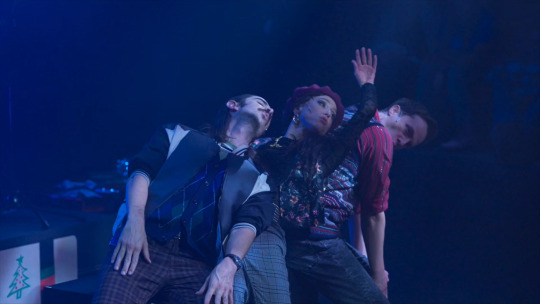

iconic
also iconic is gruelle's face here

#bred spektr and gruelle#bred#spektr#spektrum#gruelle#starkid#team starkid#vhscc#vhs christmas carols#the magi#gifts of the magi
21 notes
·
View notes
Text

.... Mafalda .... en The Magi from Middle East....
There is less than a month until the Three Magisians (Wise Men) arrive. hey mom?
That's how it is .
And tell me, they come from the Middle East, right?
Hey ... yes of course.
Zas!!! And what are they? Arabs or Israelis?
They always stayed above that issue, my child.
Well, it's good for you that they are magicians so you don't have to explain to me how they did it!! Hey?
Quino
78 notes
·
View notes
Text

Three Wise Men ; Joseph Christian Leyendecker
23 notes
·
View notes
Text

———-🎄MERRY CHRISTMAS🎄————-
A lone poor child, with only his beloved drum to play, joins with the Magi, the Wisemen of the East following a star, to find the Christ Child. While they presented their gifts of gold, frankincense and myrrh, the drummer boy had only his song to play; a song that brought happiness to Child’s face! A with that, a great blessing to the Drummer Boy, for he gave all he could for the King of Kings!
“Blessed are the pure of heart: for they shall see God.”-Matthew 5:8
#Christmas#Merry Christmas#Happy Holidays#Christmas 2023#merry xmas#the little drummer boy#the Magi#wise men from the East#gold frankincense and myrrh#the greatest gift of Christmas#my art#artists on tumblr#art#procreate app#apple pencil#illustration
28 notes
·
View notes
Text

Kevin “Geordie” Walker - Killing Joke, Murder Inc., So36, K-93, The Damage Manuel, The Magi
18 décembre 1958 - 26 novembre 2023
#Kevin “Geordie” Walker#geordie walker#kevin walker#K÷93#Killing Joke#Murder Inc.#So36#The Damage Manual#The Magi#killing joke#killingjoke#post punk#post-punk#punk rock#punk#new wave#newwave#1980s#80s#80's#80s music#80s punk#80s style#80s aesthetic#80#industrial#industrial music#industrial band#indus#uk artist
33 notes
·
View notes